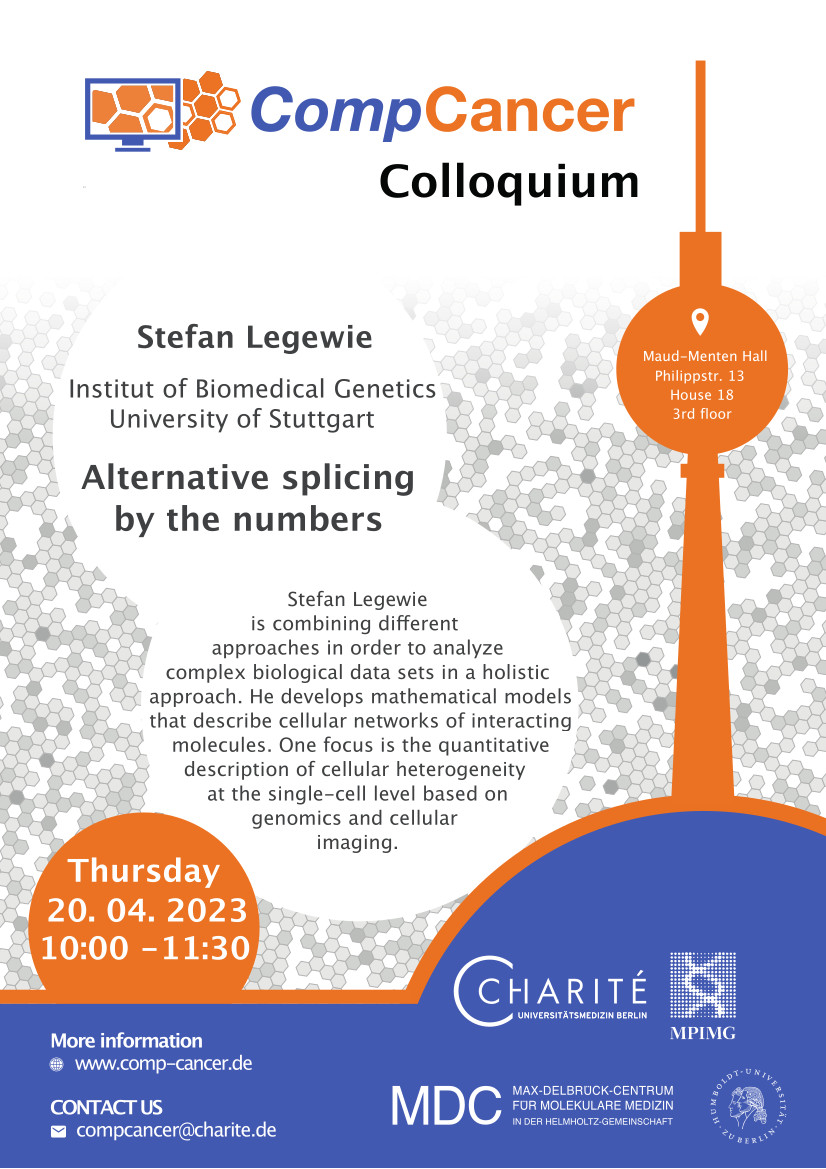We have a new mailing list for people who are interested in our PhD programme and events that are open to everyone (such as our colloquium).
Join and stay updated!
Published on May 30, 2023
We have a new mailing list for people who are interested in our PhD programme and events that are open to everyone (such as our colloquium).
Join and stay updated!
Published on May 5, 2023
This year we support the Pint of Science festival
Listen to scientists talking about their research in a fun and easily understandable way while enjoying a pint of beer!
Everyone can be involved, ask questions and discuss interesting topics of all areas of science.
This year, the events will be on Monday, 22nd May at Volksbar (German), on Tuesday, 23rd May at Kohlenquelle (English) and Wednesday, 24th May at Kallasch (English).
You need to buy tickets, (2.50€). Be quick as the events are usually sold out!
Looking forward to seeing many of you there!
Published on Apr 13, 2023
We are glad to have Stefan Legewie from the University of Stuttgart in our Colloquium with his talk entitled "Alternative splicing by the numbers"
Thursday, 20.04.2023 at 10 am
Maud-Menten Hall, Phillipstr. 13, House 18, 3rd floor
Short bio:
Stefan Legewie studied biochemistry at the University of Witten / Herdecke. During his studies, showed interest in the field of systems biology (still young then), in which mathematical tools are used to interpret experimental data. He did his PhD in Biophysics at the Humboldt University in Berlin under the supervision of Hanspeter Herzel and in 2008 he received his doctorate with distinction (summa cum laude). In his dissertation he examined cellular information networks that transmit hormonal signals from the cell surface to the cell nucleus, and was able to derive design principles that give these networks robustness and switch-like decision-making behavior. The dissertation was awarded the MTZ Prize for Medical Systems Biology and the Reinhart Heinrich Prize for Theoretical Biology. After a short stay at the German Cancer Research Center, Stefan moved to the newly founded Institute for Molecular Biology (IMB) in Mainz as a group leader in 2010. There he was able to expand his work on the robustness and heterogeneity of biological systems and also deal with the question of how the activity of genes can be reliably controlled. He has been Professor of Systems Biology at the University of Stuttgart since September 1, 2020.
Published on Apr 12, 2023
For the seminar on the 12th of April am Melanie Fatohi invited Kenji Kamimoto from the Morris Lab (Washington University in St. Louis, Missouri, USA), to give us a talk on his recent work about CellOracle, a computational tool that infers gene regulatory networks for in silico gene perturbations for elucidation of cell identity dynamics.. If you are interested in joining write an e-Mail to compcancer at charite dot de to receive the zoom link.
Because of the time difference, the literature seminar will take place virtually on zoom at 5 pm.
Published on Mar 22, 2023
We are pleased to announce our first speaker in our Colloquium 2023!
Martin Schäfer from the Istituto Europeo di Oncologia in Milano will give a presentation entitled "Selection in tumor genome and epigenome evolution"
When? March 23 starting at 4 pm
Where? Maud-Menten-Hall
Philippstraße 13
Haus 18 (3rd floor)
10115 Berlin
Martin Schäfer and his lab members are interested how alterations of the DNA transform a healthy into a malignant cell. Recent efforts uncovered a large number of genetic or epigenetic alterations in cancer patients, but it is difficult to tell which of those contribute to disease progression.
As the process of cancer development often takes many years, they are studying the evolutionary principles and try to understand how the environment modulates cancer evolution.
Additionally, with newly developed methods using tools from network and systems biology they try to better understand the interplay between different alterations in cancer genomes and epigenomes.
The research training group CompCancer (RTG2424) is a DFG funded PhD programme in Berlin, focussing on computational aspects of cancer research.
Contact: compcancer at charite dot de
@CompCancerRTG